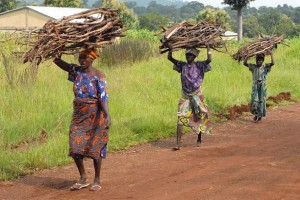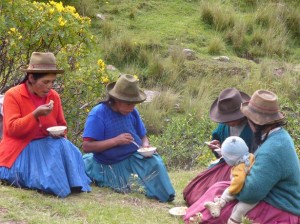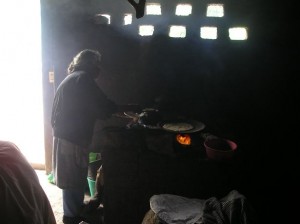
The Mission
Solar Household Energy (SHE) strives to unleash the potential of solar cooking to improve social, economic and environmental conditions in sun-rich areas around the world.
Discover aspects of our mission by clicking below…
Social
 For families reliant on wood or biomass fuels for cooking there are a host of health problems tied to their use of cooking fires:
For families reliant on wood or biomass fuels for cooking there are a host of health problems tied to their use of cooking fires:
Smoke inhalation: In many countries, women and young children spend hours a day in smoky cook houses. The biomass (wood, animal dung and crop residue) used as fuel gives off toxic smoke at about seven times the safe limit set by the U.S. Environmental Protection Agency, (EPA). According to the WHO, every twenty seconds a person dies from this condition known as Indoor Air Pollution (IAP). IAP can lead to lung cancer, low birth rate, cataracts, bronchitis, TB, higher infant mortality and asthma as well as pneumonia and other respiratory infections which are the biggest killers of children under five years of age in the developing world.
Back and neck injuries: Smoke inhalation is not the only health risk. Women and children also suffer back and neck injuries from gathering and carrying fuel wood. Children often burn themselves by falling into cooking fires. The injuries and diseases caused by the use of cooking fires can only be relieved by introducing less labor-intensive and cleaner cooking methods.
Severe burns: It is not uncommon for young children playing near cooking fires (particularly when the fires are temporarily un-attended by an adult) to step or fall into fires, suffering acute burn injuries.
Economic

For families already struggling with economic challenges, the need to devote precious time and resources to gathering biomass for fires can be crippling.
Families that buy their cooking fuel can spend up to one-quarter of their income on wood or gas. Other families who forage for fuel must continually look further and further from home as fuel wood becomes more scarce. Foraging for fuel wood is a demanding task that reduces the time women and children have for school and profitable work. For example, in El Salvador some women and children spend 3 to 4 hours a day foraging for fuel wood up to 5 times a week. As securing energy requires more time or money, people’s quality of life will continue to decline.
Environmental

Often overlooked in global emissions agreements, the CO2 released by cooking fires is a major contributor to the world’s emissions problems. A solution which can diminish the third world’s reliance on biomass exists, solar cooking.
Emissions: More than three billion people, half of the world’s population, rely on cooking fires according to the World Health Organization. These fires are inefficient, release CO2 into the atmosphere and consume fuel at unsustainable levels. The percentage of fuel wood consumption in developing countries is astounding.
Environmental Degradation: Environmental degradation is a critical problem in Mali where “the desert is advancing 2.4 miles each year,” says Gnibouwa Diassana, World Vision Mali. As Drissa Coulibaly, who lives in small village outside of Mopti in northern Mali, can attest the destruction of trees in sub-Saharan Africa is alarming: “When I was a child there were many trees that provided shade and fruit in our village. Today I can see far out into the desert.”
Mr. Coulibaly’s statement is supported by research. Fuel wood consumption in Bamako, Mali grew from 600,000 tons in 1994 to about 1.2 million tons in 2000, according to the UN Office for the Coordination of Humanitarian Affairs. In an effort to slow this devastating trend, the government of Mali imposed a six-month ban on tree felling and the export of charcoal, in July 2004. This policy increased the price of wood and charcoal by up to 50 percent, putting enormous strain on household incomes. Lacking alternative fuels, people had no options.



